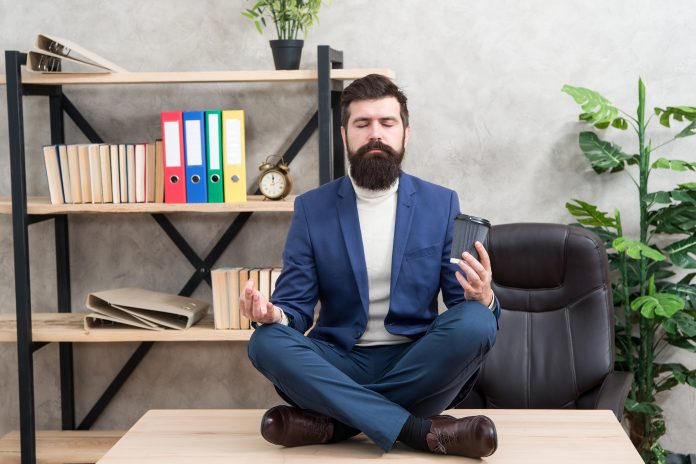Ruth Farenga, managing director of Mindful Pathway, explores how leaders can look after their personal wellbeing and effectively manage stress during uncertain times
During a crisis like COVID-19, it is tempting for leaders to assume a purely operational mode and work all hours trying to put out fires and anticipate issues. Whilst we do need to manage our immediate response, we should try to resist this temptation and reflect on ways of leading through the crisis. What is more important in the medium to long-term is that we are thinking about ourselves, our employees, our organisation and the wider world in the coming weeks, months and year ahead.
This means gaining some perspective to lead effectively.
It is well documented that stress can block our perspective and clarity. When stressed, we develop tunnel vision, meaning we do not think clearly. We get anxious and anxiety leads to foggy-headedness and ultimately, exhaustion. It can also mean that we catastrophise our situation. While there is undoubtedly a challenging road ahead for many of us, our anxiety can sometimes lead us to focus on the worst parts, instead of finding solutions.
‘We don’t see things as they are, we see things as we are.’
Anais Nin
To avoid this (or to support ourselves if we are already feeling like this) we need to start looking after our personal wellbeing.
So, how do I create that space?
Allow yourself thinking space with a peer, mentor or coach
A crisis demands both short-term decisiveness and long-term strategic thinking. We need to think about the implications of immediate decisions, such as how we communicate a salary cut or a reduction in hours with employees, as well as the long-term vision. To help facilitate this, you might want to ask yourself:
How would I like to be remembered both as a leader and as a company?
In order to allow ourselves this space, it may be helpful to use a peer, mentor or coach who is a good listener and who can help you navigate your own way through this. This will provide ongoing support and a sounding board to help you make skilful and well-planned actions.
Pay attention to what you need
It is worth reminding ourselves that adrenaline is addictive, which can make us feel like we are on the proverbial hamster wheel and unable to get off. This will sound familiar if you have trouble switching off from work in the evening or sleeping. However, it is possible to slow down without inhibiting our drive or ambition and to simply be more effective. (I talk about misguided fears leaders can have in slowing down in this blog Will I lose my edge? And other myths about Mindfulness)
‘Between stimulus and response there is a space. In that space is our power to choose our response. In our response lies our growth and our freedom.’
Viktor Frankl
An immediate practical step is to ask the following questions. What gives me energy? What builds my mood? It could be a regular walk, starting a meditation practice or watching comedy. These nourishing things in our days are not optional extras – they are the foundations of what keeps us well and in good health.
They need to be a priority and not something we do once everyone else has been looked after.
When I am coaching professionals in Mindfulness, we explore these nourishing actions to identify how much in their day is nourishing and how much is depleting. It is not that we should (or can) simply cut out all the depleting activities, but we may be able to reduce them or approach them differently. Meanwhile, we can boost the time we spend on the activities that give us energy.
Sometimes, something as small and regular as a short meditation, or, 10 minutes with a cup of tea in the morning while looking outside, can afford us valuable space.
Create habits that stick
It is not enough to know what we need; we actually need to do it! It is tempting to think that we just need more willpower to go for that regular run or do that meditation but author James Clear talks about this being more about creating a system.
If our goal is to improve our wellbeing, then we need to create a system that enables us to do regularly activities that support this. This requires knowing a little about what motivates us and helping us start small.
‘Decide on the type of person you want to be and prove it to yourself every day with small wins.’
James Clear
This is not about eliminating stress overnight – I know from personal experience this is impossible! What I have experienced personally and with clients is that we can become someone that takes care of ourselves so that we become more effective and can lead with more clarity.











